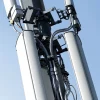Huawei Test 1Tbps Capacity Upgrade for Existing Fibre Optic Networks
Proximus and Huawei have trialled a new upgrade for existing core fibre optic networks that could help to upgrade current capacity from 200Gbps (Gigabits per second) to 400Gbps or even 1 Terabits per second, which would be used to meet the ever rising data demands of modern broadband consumers.
At this point it’s worth reflecting how we’ve seen plenty of other demos of even faster fibre optic networks over the years, such as last year’s effort by Dutch scientists to push an astonishing 255Tbps (Terabits per second) over a single 1km long link (here). But that required a completely new network and a 7 core fibre optic cable.
Advertisement
Meanwhile BT and Huawei were last year able to harness a “record spectral efficiency” of 5.97bit/s/Hz in order to deliver super-channel speeds of 3Tbps (Terabits per second) over an existing 359km long fibre optic link using commercial grade hardware and software in a real world environment (here).
By comparison the latest development is closer to last year’s BT test in that it was conducted over a 1,040km fibre optic link using an advanced ‘Flexgrid’ infrastructure with Huawei’s Optical Switch Node OSN 9800 platform, which makes use of a new 1Tbps Optical Transport Network (OTN) line card.
Crucially this setup is able to reuse an existing optical platform, chassis and slot for easier / cheaper deployment. As usual operators would be able to multiply this in order to significantly boost the transmission capacity of their core networks, taking them into the high multi-Terabit territory; a much better option than laying new cables.
Jeffrey Gao, President of Huawei’s Transmission Network Products, said:
“The network is turning to DC (Data Center) centric, which brings a boost demand for increased bandwidth. Businesses are currently undergoing a digital transformation and consumers require always-on connectivity. Huawei supports its customers through innovation; together we build simplified networks ensuring the best user experience towards end users. This trial is testimony of Huawei’s engagement to innovation.”
It’s worth pointing out that Huawei has strong links with BT in the United Kingdom and indeed the company has so far made a contribution of £956m to our GDP over the last three years (2012-2014), supporting 7,400 jobs directly and through its supply chain. Furthermore they intend to invest £1.3bn into the UK between 2013-17.
Advertisement
In an ideal world all of these developments, including some of Ofcom’s recent regulatory changes (Dark Fibre etc.), should eventually trickle down to help to make the cost of backhaul capacity cheaper for ISPs. Mind you consumers will probably have increased their demands to compensate for that.
Mark is a professional technology writer, IT consultant and computer engineer from Dorset (England), he also founded ISPreview in 1999 and enjoys analysing the latest telecoms and broadband developments. Find me on X (Twitter), Mastodon, Facebook, BlueSky, Threads.net and Linkedin.
« Sky Adds FREE Setup to 6 Months Half Price Unlimited Fibre Broadband

















































Comments are closed